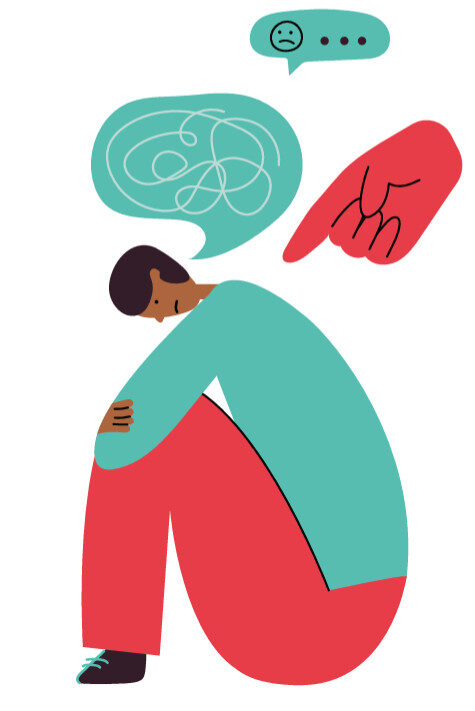Key statistics:
- Violence against women and girls remains one of the most prevalent and pervasive human rights violations in the world;
- Almost one in three women have been subjected to physical and/or sexual intimate partner violence, non-partner sexual violence, or both, at least once in their lives; and
- Every 10 minutes, a woman is killed.
What is digital abuse?
Digital tools are increasingly being used to stalk, harass, and
abuse women and girls. This includes:
- Image-based abuse/non-consensual sharing of intimate images — often called revenge porn or leaked nudes;
- Cyberbullying, trolling, and online threats;
- Online harassment and sexual harassment;
- AI-generated deepfakes such as sexually explicit images, deepfake pornography, and digitally manipulated images, videos, or audio;
- Hate speech and disinformation on social media platforms;
- Doxxing — publishing private information;
- Online stalking or surveillance/tracking to monitor someone’s activities;
- Online grooming and sexual exploitation;
- Catfishing and impersonation; and
- Misogynistic networks.
These acts don’t just happen online. They often lead to offline violence in real life, such as coercion, physical abuse, and even femicide — killing of women and girls. The harm can be long-lasting and affect survivors over a prolonged period of time.
Digital violence targets women more than men, across all walks of life, but especially those with public or online visibility, such as activists, journalists, women in politics, human rights defenders, and young women
.
The impact is even worse for women facing
intersecting forms of discrimination, including race, disability, gender identity, or sexual orientation.
“In your consultation room, you can offer a safe space for someone to make a phone call — whether it’s to a loved one, An Garda Síochána, or a local support organisation.”
Why is digital abuse so hard to stop?
- Weak regulation of the technology sector or a lack of legal recognition of digital violence in countries;
- Lack of accountability from tech platforms and social networking sites;
- Normalisation of violence in manosphere spaces;
- Artificial Intelligence is creating new forms of abuse and amplifying digital violence;
- Growing backlash against gender equality;
- Anonymity of perpetrators and cross-border abuse make it harder to get justice; and
- Limited support systems for survivors of cyberbullying or personal data leaks.
How can Safe Pharmacy support the 2025 UNiTE campaign?
To mark the 16 Days of Activism, the campaign calls on individuals to speak out, support survivors, and challenge harmful online norms.
By highlighting the Safe Pharmacy service in your pharmacy, you create an environment where individuals feel empowered to seek help. In your consultation room, you can offer a safe space for someone to make a phone call — whether it’s to a loved one, An Garda Síochána, or a local support organisation.
The UN has resources on its website that can be used to ‘Orange the World’, including a social media toolkit, available at
unwomen.org >
What We Do >
Ending Violence Against Women >
UNITE To End Violence Against Women Campaign
You can wear orange or display the colour orange, which is the UN symbol of hope and a future free from violence.
International Day for the Elimination of Violence against Women (IDEVAW)
The UN General Assembly designated 25 November as the International Day for the Elimination of Violence Against Women, in 2000. You can support IDEVAW through the IPU Safe Pharmacy Service by doing the following:
- Raise awareness in the community:
- Display the purple Safe Pharmacy logo prominently in your window to signal participation;
- Use orange-themed decorations to show solidarity with the global ‘Orange the World’ movement;
- Share educational materials about domestic abuse and coercive control in-store and online; and
- Promote the initiative on social media using hashtags like #SafePharmacy, #IDEVAW, and #OrangeTheWorld.
- Offer a safe, private space:
- Ensure your consultation room is available and clearly designated for Safe Pharmacy use; and
- Provide access to a phone and contact details for local support services, including:
- Safe Ireland, at safeireland.ie > Get help > Where to find help.
- Women’s Aid on 1800 341 900;
- Men’s Aid Ireland on 01 554 3811;
- Male Advice Line on Freephone 1800 816588; and
- An Garda Síochána emergency number 999 or 112.
- Train and empower staff:
- Nominate a Safe Pharmacy Champion — a pharmacist, technician, or OTC staff member trained to respond compassionately, see ipu.ie > Safe Pharmacy > Get involved;
- Ensure as many of your staff as possible complete the IPU’s ATHE Certified Training Course on domestic abuse and coercive control. The full cost of this course is funded by the IPU;
- Follow the Safe Pharmacy protocol:
- Offer a private space;
- Explain confidentiality;
- Explain what you can offer;
- Confirm what they would like to happen. Provide access to a phone if required;
- Record the Safe Pharmacy Interaction at ipu.ie > Report a Safe Pharmacy interaction; and
- Debrief with a colleague.
- Engage in the 16 Days of Activism:
-
- Host mini-events or info sessions; and
- Collaborate with local shelters or advocacy groups.
- Encourage public participation:
- Invite customers to wear orange or donate to domestic abuse charities;
- Offer free consultations or wellness checks focused on women’s health; and
- Create a ‘Wall of Support’ where people can leave messages of solidarity.
Safe Pharmacy
To read more about The Safe Pharmacy Service, go to
ipu.ie >
Safe Pharmacy, where you can:
- Sign up to be a Safe Pharmacy; and
- Find a list of participating pharmacies.
If you wish to complete the Safe Pharmacy training, go to
ipu.ie >
Professional Academy and search ‘
Safe Pharmacy’.
For any queries, assistance, or further information on Safe Pharmacy, please contact:

